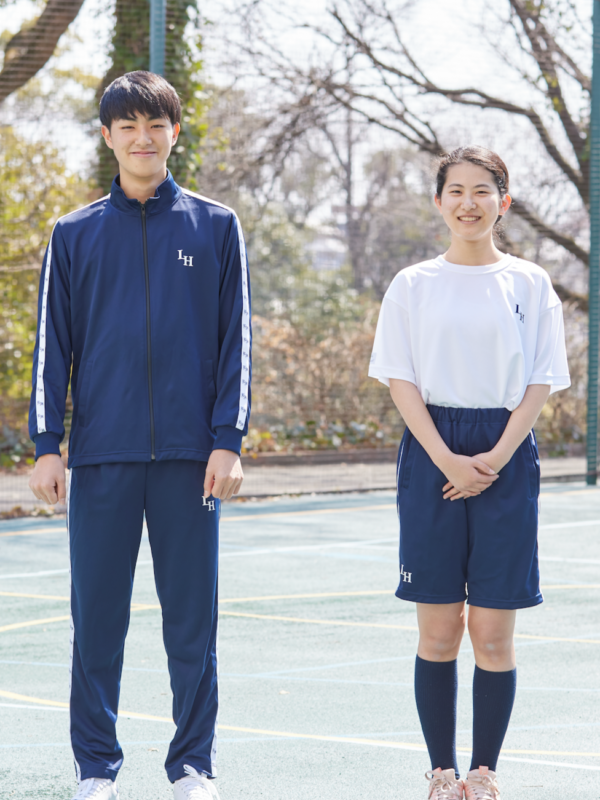
Aug 30, 2022
As part of our commitment to ESD (Education for Sustainable Development), Linden Hall High School has been providing a special SDGs seminar series, “Insight”, taught by changemakers at the forefront of various fields.
✔ About “Insight”, a Special Seminar Series
Last year, in collaboration with local organic farmers, we became the first school nation-wide to begin to offer year-round organic school lunches, good for both the Earth and for people. Additionally, we have started to include meat and fish substitutes in some of our meals. To limit food loss and wastage, we encourage our students serve themselves the amount of rice they feel they can realistically consume and put leftovers into the compost, which is used for our farm. Through these initiatives, we aim to provide shokuiku, or a food and nutrition education that increases awareness of the connection between our consumption habits and environmental systems.
✔ About Our Organic Food Service and Shokuiku (Food and Nutrition Education)
Before COVID-19, Linden Hall High School students participated actively in a wide variety of programs centering on the SDGs and solving societal issues. Examples include, the Art Mile International Collaborative Learning Program with Kuoppanummi Koulukesku School in Finland, a volunteer expedition to Fiji involving the repair of a damaged school building, medical volunteerism with GPSA at the border between Thailand and Myanmar, Business Plan Contests dealing with societal issues around the world, etc.
✔ About Overseas Volunteer Activities
✔ About Volunteerism and Service / CAS
In May 2021, students with a passion for the SDGs gathered and embarked upon a discussion about what they could do to promote a more sustainable society despite the limitations placed by COVID-19. Fueled by the thought that, “Rather than leave environmental activities to the adults, we ourselves should spark a nation-wide movement,” the SDGs Clothing Education Project was inaugurated with the support of sustainable apparel brand, which is characterized by its sweet insect motifs. This project involves making sustainable PE uniforms out of recycled used and unwanted clothing.
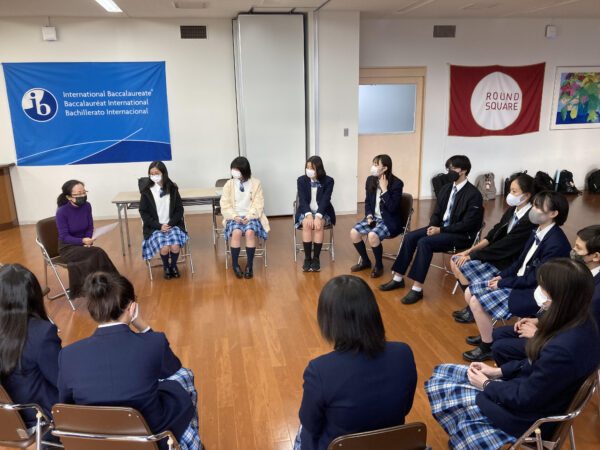
At the kick-off conference in June, a specialist engaged project students in a problem-based-learning-style seminar. We shared knowledge about and debated from multiple perspectives, topics such as the fashion industry’s SDG-related efforts around the world and state-of-the-art recycling technologies, issues caused by the mass production and consumption of apparel as well as wastage of the clothing produced, water pollution resulting from dyeing the clothing during production, environmental issues and problems caused by relying on cheap labor in developing countries, etc. The seminar was an important opportunity for students to analyze and understand the various issues at hand.
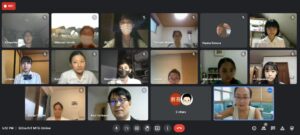
“I strongly believe we should take more responsibility to solve environmental issues. Many developed countries took an active role in the industrialization of developing countries, causing pollution. Moreover, developed countries have the knowledge and resources needed to take action. We are privileged enough to receive a good education and possess an awareness about environmental issues. Therefore, I decided to join this project team, to do what I can do and save the future for not only our generation, but for the generations after us.” (Maria Tsuzuki, Grade 11)
The project team members reflected deeply on environmental issues surrounding the apparel industry and the question, “What can we do to help?” Making full use of their English abilities, the students researched and discussed clothing and the environment, and consequently decided to remake the school PE uniforms into a gender-less design and out of recycled materials.
Next, in July, the project team visited the factory of the Japan Environment PLANning (JEPLAN) company in Kita-Kyushu, Fukuoka, seeing with their own eyes the chemical recycling process. The Japan Environment PLANning company developed a state-of-the-art chemical recycling process called BRING Technology™. In this horizontal recycling technology, clothing made with polyester is recycled into new clothes. While conventional recycling technologies allow clothing to be recycled just a few times, this new technology allows clothing to be recycled nearly endlessly. At JEPLAN’s Kita-Kyushu Hibiki Nada Factory, students got a very full picture of what chemical recycling really looks like through participating in an online seminar with Chairman Iwamoto, viewing the staff sort through the enormous amount of discarded clothing that had arrived at the factory’s warehouse, and handling the recycled polyester chips generated during the production process. On the same day, they visited the Kita-Kyushu Environment Museum, learning about and discussing how damage to the environment caused by industrialization could be repaired.
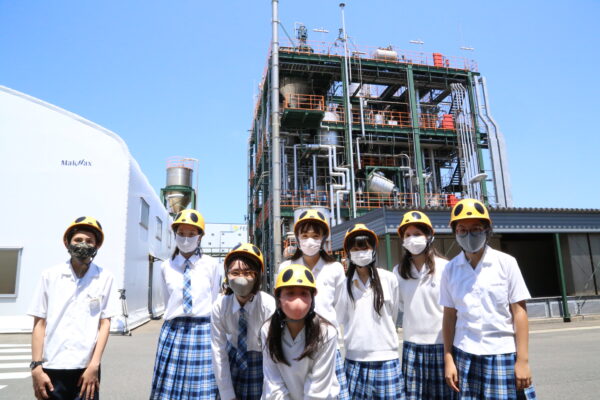
After the factory and museum visit, the project team students called on their peers for support and cooperation to collect used and unwanted clothing made with polyester to be sent to JEPLAN’s factory. They presented the project’s activities at school-wide assemblies at both the elementary and high schools as well as designed posters to spur the clothing collection drive. With the understanding and support of many parents and guardians, they collected a mountain of clothing.
Further expanding their influence, the students delivered an information session about the Clothing Education Project to the teachers at Linden Hall Elementary School. After raising awareness about the project among the teaching staff, the project team had the opportunity to educate the elementary school students about environmental issues and the project’s activities through Environmental Studies classes ※1. Through listening intently to their seniors’ presentations, the elementary school students’ interest in resolving environmental issues together with the high school students was sparked.
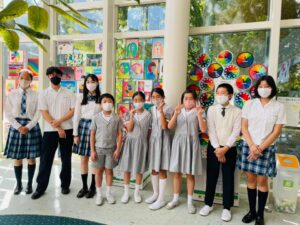
To take this passion even further, the students are bringing the SDGs Clothing Education Project to the elementary school, conducting a design contest for a school handkerchief made of organic cotton. Both the new PE uniform and handkerchief will be ready for sale within the school from the spring of 2022.
Moreover, in collaboration with Akashi School Uniform Company, which boasts 150 years in the uniform production industry, we plan to gradually increase the amount of recycled polyester in our school uniforms and participate in Re-Ring School, a uniform recycling program lead by the same company.
Supporting SDGs Education Through Uniforms Protecting the Environment Akashi S.U.C. Sustainability (akashi-suc.jp)
The images are samples of the PE uniforms to be worn from 2022.

Setting our daily wardrobes as a starting point of creating a more sustainable society through ESD education can also inspire a “dressing effect” ※2. As individuals, as organizations, as people, we must make choices while keeping at the forefront of our minds the welfare of the next generations. To ensure a healthy future for our youth, it is essential that adults and children to come together and put the planet’s health first. For this purpose, we at Linden Hall School hope to expand the scope of our Clothing Education activities throughout Japan.
*1 Linden Hall School has been designated a Ministry of Education, Culture, Sports, Science and Technology Curriculum Specially Selected School, and we offer Environmental Studies classes that deal with the Earth and the environment.
*2 “Dressing effect” points to the psychological impact of our clothing choices, in which we begin to match our behavior to the type of clothing that we are wearing.

Loading